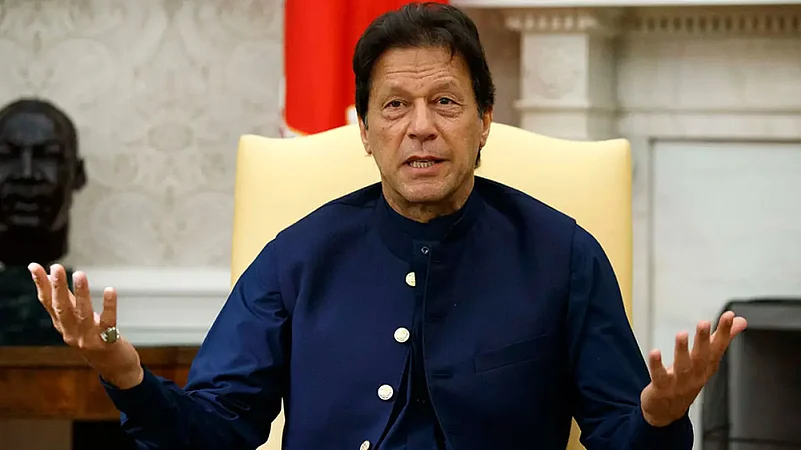Pakistan Prime Minister Imran Khan's party on Saturday issued show-cause notices to its dissident lawmakers for alleged defection and sought an explanation from them by March 26 as to why they may not be declared defectors and disqualified as a member of the National Assembly.
Nearly two dozen dissident lawmakers of the ruling Pakistan Tehreek-i-Insaf (PTI) party recently came out in the open ahead of voting on a no-confidence motion against Prime Minister Khan, with the government accusing Opposition parties of horse-trading.
The disgruntled lawmakers have been staying at Sindh House in Islamabad which is a property of the Sindh government and run by the Pakistan Peoples Party (PPP).
According to Dawn newspaper, one of the notices, which has been issued to lawmaker Muhammad Afzal Khan Dhandla, stated: "It is learnt via large-scale broadcast and videos circulated on different forums of media that you have left the parliamentary party of the Pakistan Tehreek-i-Insaf and joined the Opposition parties, who have brought a motion of vote of no confidence against the honourable prime minister of Pakistan, dated March 8, 2022."
The notice said the lawmakers had neither denied the contents of the interviews nor issued a rebuttal to this "act of defection".
The lawmakers have been asked to respond to these notices within seven days. The notice cited Article 63 (A) of Pakistan's Constitution, stating that the provision bounds the lawmakers to follow the directions issued by their parliamentary party.
You may give a reply to this show-cause notice and have a personal hearing before Mr Imran Khan on or before 2pm on Saturday, March 26, the notice said.
According to Article 63 (A) of Constitution, a parliamentarian can be disqualified on grounds of defection if he "votes or abstains from voting in the House contrary to any direction issued by the parliamentary party to which he belongs, in relation to election of the prime minister or chief minister; or a vote of confidence or a vote of no-confidence; or a money bill or a Constitution (amendment) bill".
The political situation in Pakistan has deteriorated after March 8 when the no-trust move was submitted by the Opposition parties. Amidst acrid statements, violence is feared as already observed on Friday.
The National Assembly session for the no-trust move is expected to be called on March 21 and the voting is likely to take place on March 28.
Meanwhile, Opposition leaders have warned that if the resolution calling for the no-confidence vote against Prime Minister Khan was not presented in the National Assembly on Monday — which is the deadline for tabling the resolution — they could stage a "sit-in" in the lower house, thereby hampering a high-profile Organisation of Islamic Cooperation summit that is scheduled to take place there on the same day.
PPP Chairperson Bilawal Bhutto-Zardari warned if the Speaker's non-democratic thinking comes in the way and he doesn't move the no-confidence motion by Monday, then he will propose within PPP and to other Opposition parties as well not to leave the hall.
Both government and Opposition politicians have been working overtime to tilt the balance in their favour. The PPP held the meeting of its core committee, followed by the meeting of its leaders with PML-N and JUI-F leaders at a lunch hosted by PML-N president Shehbaz Sharif.
Khan also consulted his core group about the latest situation. He also addressed the groundbreaking ceremony of Rawalpindi Ring Road and told his supporters that the no-trust move would fail.
Khan, 69, is heading a coalition government and he can be removed if some of the partners decide to switch sides.
In the 342-member National Assembly, the Opposition needs 172 votes to remove Khan.
The PTI has 155 members in the House and needs at least 172 lawmakers on its side to remain in the government. The party has the support of 23 members belonging to at least six political parties.


























